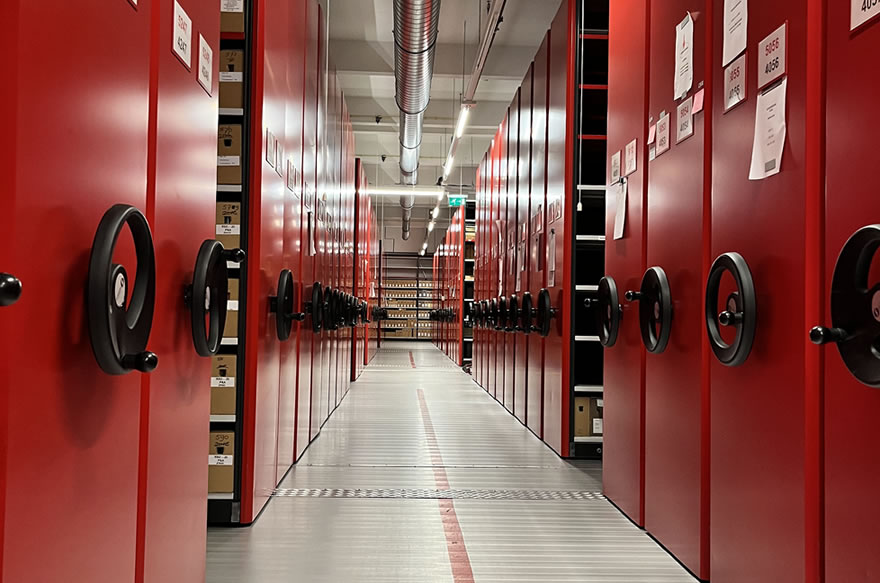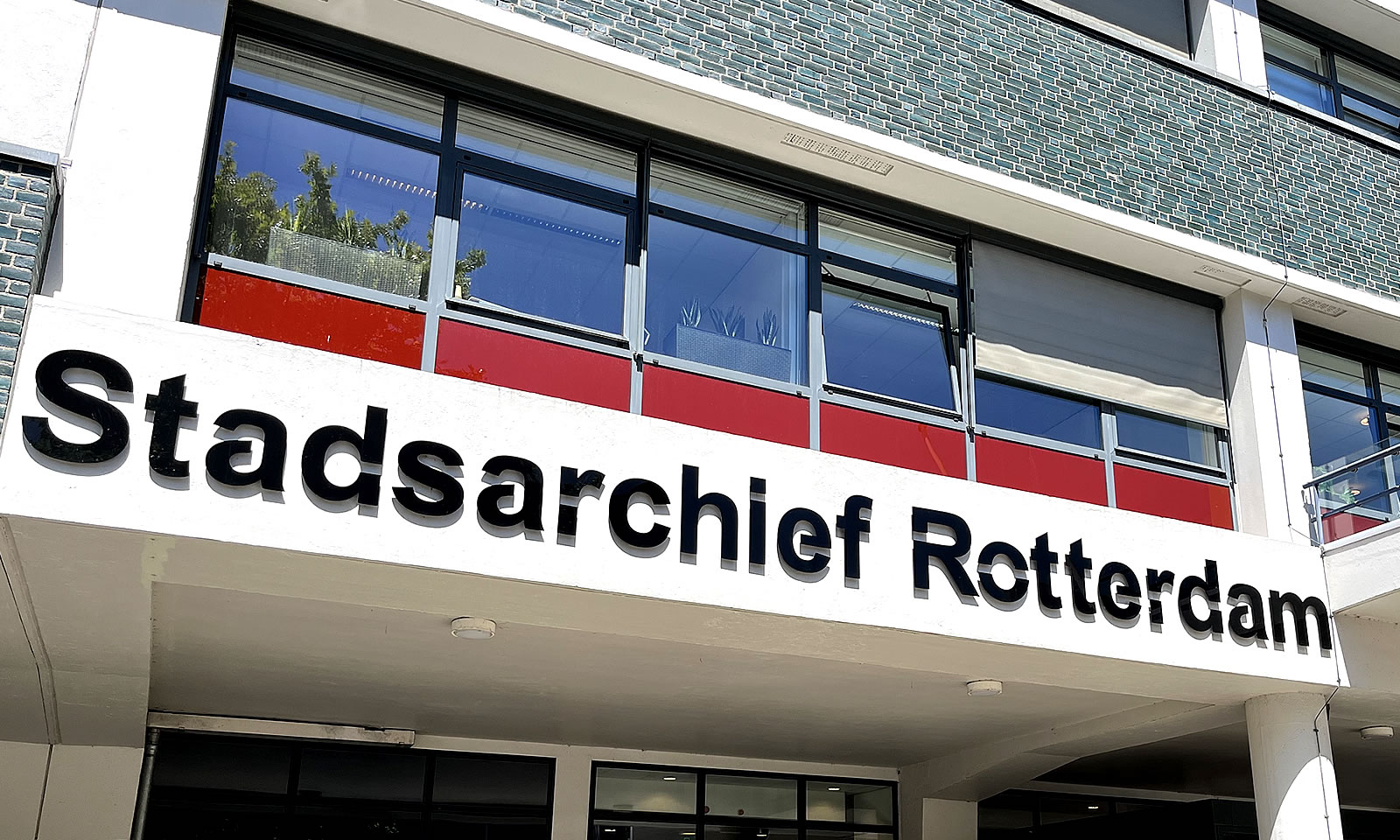iGuana is honoured by the opportunity to work with the Rotterdam City Archives (Stadsarchief Rotterdam) and its dynamic team of experts in archiving, digitization, video, sound, photography, and other fields. In response to the City Archives’ need to upgrade their digitization lab with the latest in equipment and technology, iGuana was able to design a unique solution for the Archives and offer in-depth expertise to help digital lab personnel produce digitized material of the highest quality.
The Rotterdam City Archives is one of the oldest and largest archives in the Netherlands. It collects, stores and makes accessible (both, physically and digitally) over 700 years worth of history of the City of Rotterdam and the surrounding region. The City Archives contains over 20 km of paper archives and hundreds of thousands of photos, slides & negatives, magazines, newspapers & articles, books, films, sound recordings, maps, posters, drawings, plans, prints, and more. Its Atlas collection, for example, contains well over 1.5 million documents. The Rotterdam City Archives also serves as the archive repository for several regional municipalities and other government institutions as well as for archives of private organizations.
Speaking the Same Language & Shared Expertise Go a Long Way
The server room of the Rotterdam City Archives is the first in the Netherlands to be officially approved as a digital archive repository, which means that it can serve as an e-depot for secure, sustainable storage and preservation of digital information, ensuring that it is proactively managed, maintains its integrity and remains accessible for generations to come.
Since all digital information of the city which falls under the Archives Act and that must be kept for longer than 20 years has to be transferred to the City Archives, running an e-depot is no small task. In addition, the City Archives offers a Scanning on Demand service to the public, which makes it possible for anyone to request a document to be digitized and published online. All of this requires specialized knowledge and expertise. This is why having a trusted partner with in-depth knowledge in the field that they can rely on is so important for the City Archives.
“For us, one of the biggest advantages of working with the iGuana team is that they understand very well what we need and how to fix any issues that we may run into,” says Tommy Ventevogel, Coordinator Sound and Vision at Rotterdam City Archives. “This is because iGuana has expertise in the same field as us. They also digitize archives and cultural heritage materials, they know what digitization entails, what equipment is needed, how to calibrate it, etc. This makes a big difference when working with an external supplier,” he adds.
Unique Combination of Equipment, Technology & Know-how
Digitizing such a wide variety of materials that found their home at the City Archives of Rotterdam calls for a customized solution which is versatile enough to make it possible to handle materials of all shapes and sizes and which can be easily reconfigured to accommodate numerous specialized, individual digitization projects. This is exactly how the Rotterdam City Archives’ digital lab is set-up. With help from iGuana, it combines equipment, technology, and knowledge of how to optimize processes in the most efficient and cost-effective way possible.
“We favour a practical approach, there is no need to reinvent the wheel. Although certain equipment needed to be upgraded or replaced, we were also able to effectively re-use some of it in the new set-up,” tells Yves Vanderhaeghen, Senior Solution Designer and Metamorfoze expert at iGuana. “Basically, what we achieved is help our customer keep everything that works well, tweak what doesn’t, add a few new things, and optimize. The same goes for workflows that are in place. Together with the City Archives team we made it work.”
One example of the flexibility and configurability of the set-up is the book scanner installation. Planetary, open system book scanners were chosen to do the job. An “open system” means that should digitization requirements change, the system can be easily reconfigured by tweaking individual components. For example, cameras and/or lenses can be easily replaced, lighting adjusted, etc. as many times as is required. In a closed system this would mean replacing the scanners themselves. Coupled with ergonomics and ease-of-use that make training operators and the scanning process smooth and easy, this is a major advantage both, from a cost and a productivity perspective.
Additional examples include custom-built “repro stations” for capturing images in a horizontal or vertical position, featuring top of the line camera systems, such as the Phase One XF IQ4 150 MP, adjustable lighting, etc. (see video & photos provided).
We would like to thank the Rotterdam City Archives for allowing us to continue to take part in their efforts to preserve the history of Rotterdam in digital memory, for extending our team a very warm welcome during our tour of the Archives, and for making it possible for us to gather all the wonderful photo and video material for this article. We look forward to continued cooperation for years to come!
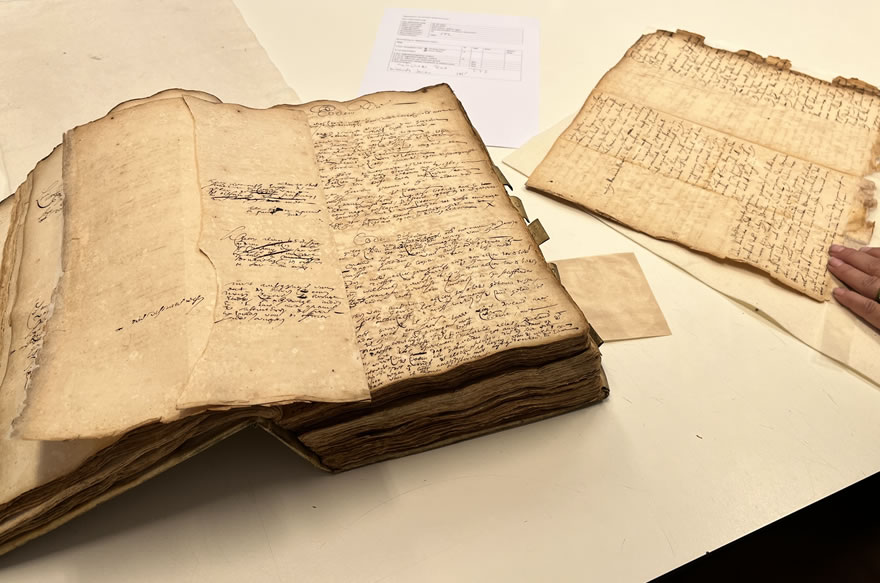
Restoration of a fragile book in preparation for subsequent scanning, digitization & processing at the digital lab

Open system planetary book scanner installation in action, complete with adjustable lighting, camera system & capture software
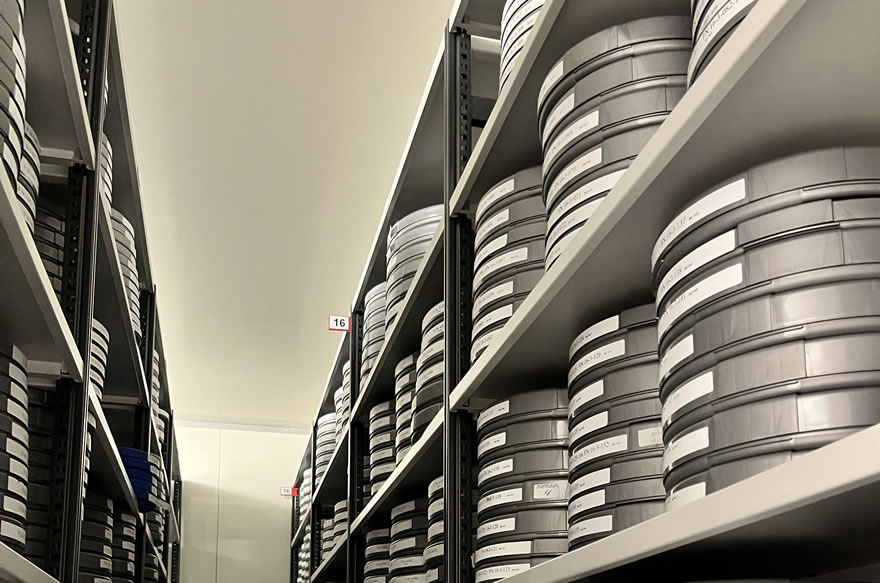
Rotterdam City Archives stores & digitizes all kinds of materials, each requiring a specialized approach (photo inside cooling chamber)
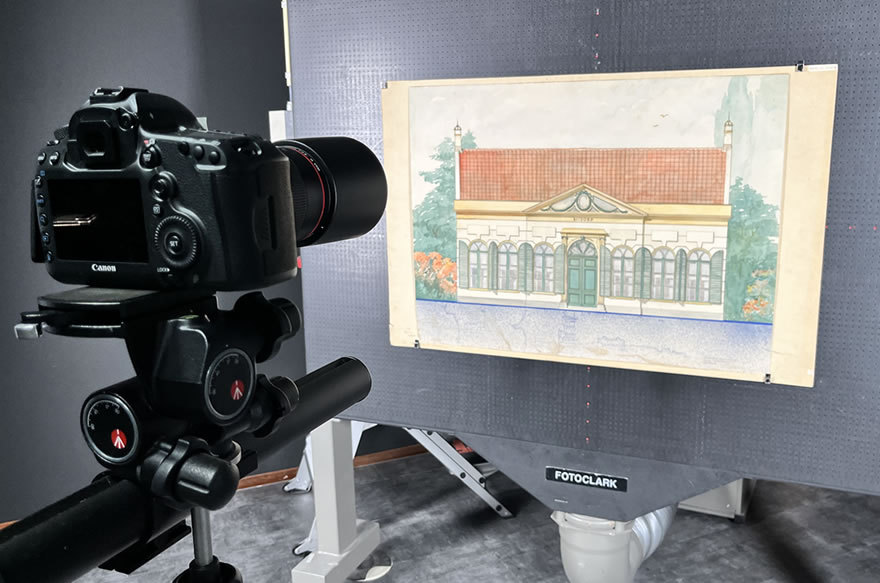
Creative use of suction equipment to gently hold oversized documents in place and in a vertical position during capturing process
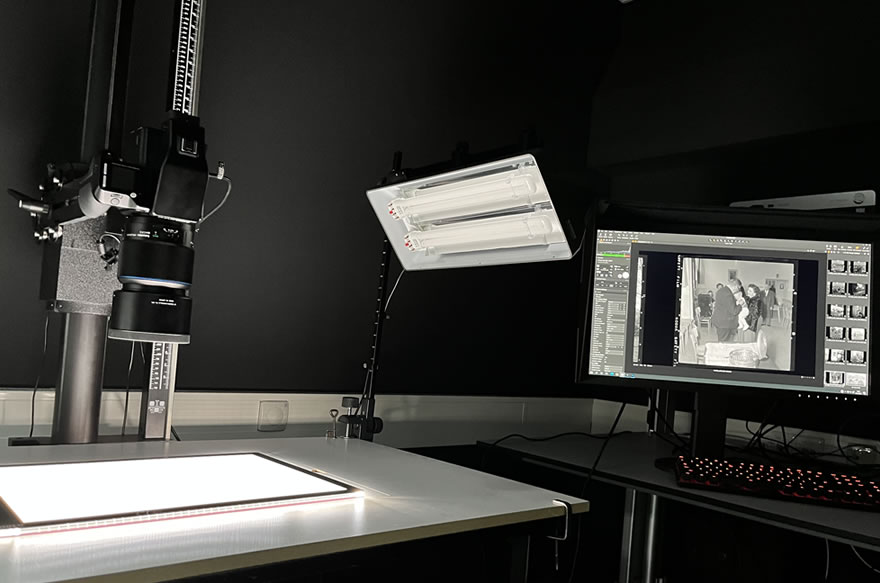
Digitization of a collection of negatives using the top-of-the-line Phase One XF IQ4 150-megapixel camera system & set-up
